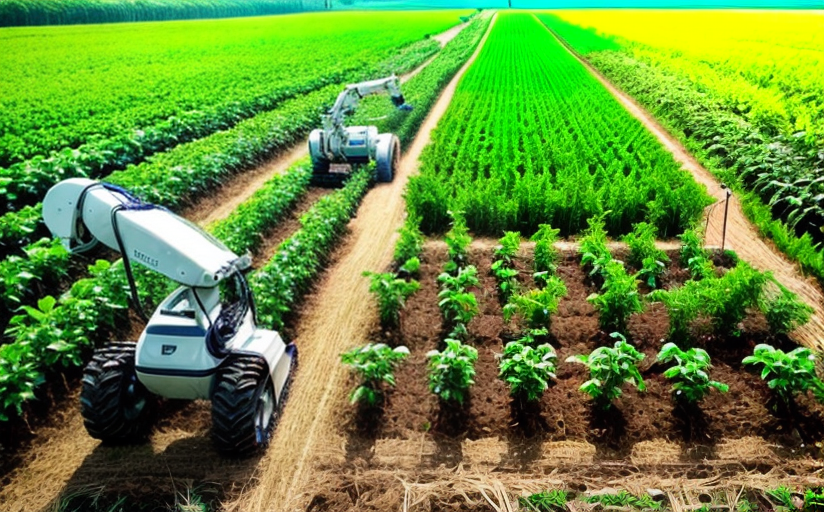The Impact of Artificial Intelligence on Sustainable Agriculture
Today, the advancement in Artificial Intelligence (AI) technology and its integration in various industries has significantly revolutionized their operations. Among these sectors is the pivotal agriculture industry, which is central to human survival.
Reshaping The Agriculture Sector With AI
Artificial Intelligence is transforming the agricultural industry in numerous ways. With data-driven insights and automation, AI helps farmers make more informed decisions, improve agricultural practices, reduce waste, and increase productivity.
The Role of Machine Learning, Predictive Analytics, and AI-driven Robotics in Agriculture
Machine Learning (ML), a subset of AI, is playing a significant role in optimising agricultural practices. With ML, farmers can predict yield production and disease occurrence in crops, enhancing agricultural planning and management. For instance, instead of randomly applying resources, farmers can now concentrate on areas that need the most attention, thus minimizing waste and maximizing productivity.
Farmers are also benefiting from the power of predictive analytics. By analyzing weather patterns, soil conditions, growth trends and other critical factors, AI can accurately predict future agricultural outcomes. This allows farmers to make informed decisions about crop planting, harvesting, and selling, leading to substantial cost savings and increased profitability.
Moreover, AI-driven robots are emerging as farmhands of the future. These robots can perform tasks such as sowing seeds, harvesting crops and more, with efficiency and precision. This not only contributes to increased productivity but also promotes sustainable agriculture by minimizing waste.
Promoting Sustainability and Reducing Environmental Impact Through AI
AI in agriculture is also contributing to sustainability by minimizing waste and optimizing resource use. For instance, AI and ML algorithms can help determine the precise amount of water, fertilizer, or pesticide needed for each plant, reducing waste and lessening the agriculture industry's environmental footprint.
Challenges and Future Possibilities
Though AI offers immense benefits, its adoption in agriculture isn't without challenges. Some of these include high initial investment costs, a lack of understanding and trust in AI technology among farmers, and data privacy concerns. However, as the technology evolves, these challenges are expected to reduce, paving the way for wider adoption of AI in agriculture.
Many believe the future of sustainable agriculture lies in harnessing AI technology even further. There are promising opportunities in developing AI algorithms to identify and combat pests and diseases, enhance genetic crop improvements and even AI-driven drones to precision-farm large scale farmlands. As we move forward, AI technology will undoubtedly continue to play a massive role in shaping a sustainable agricultural future.

















Comments
Leave a Comment